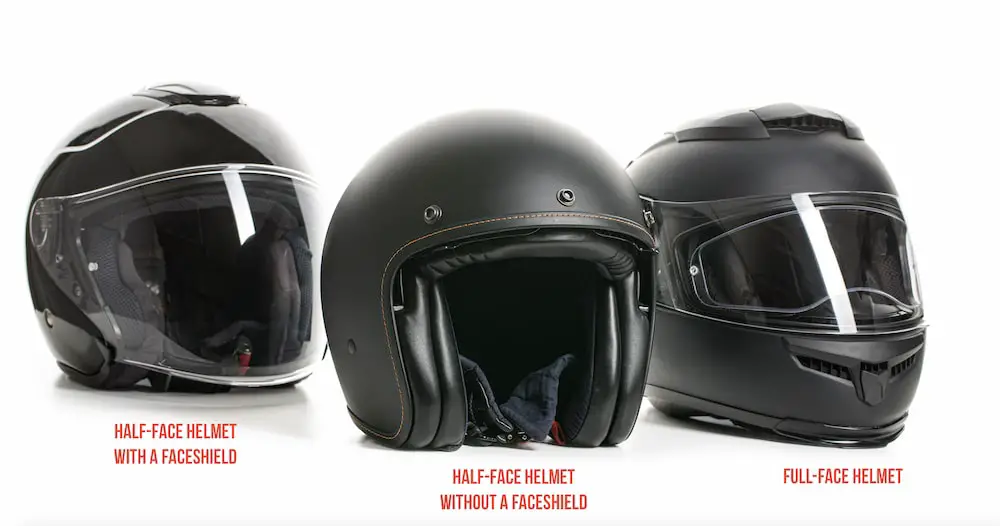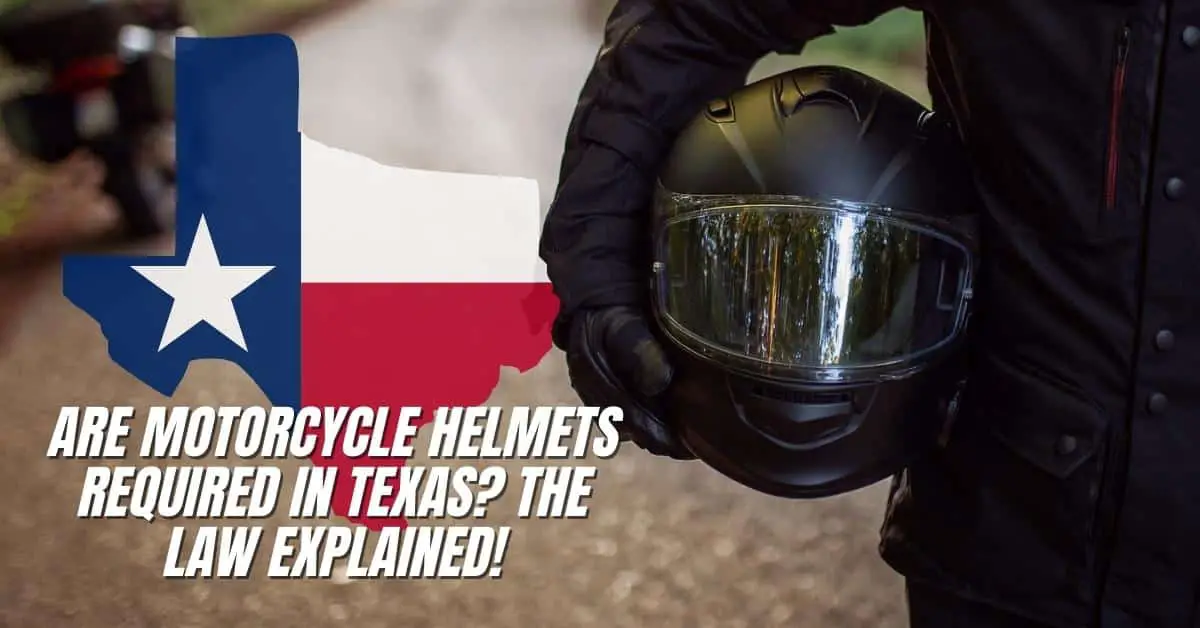We love our motorcycles and the way of life they afford us.
Here in Texas, we have some of the largest numbers of motorcycle operators. In 2021 there were near ~450 thousand active motorcycle registrations in Texas.
But did you know that motorcycles are the most dangerous way to travel in America, with an annual average of 200 deaths per billion passenger miles (2019 statistic)?
And when it comes to how to secure one can be on a motorcycle, helmets go a long way! But I have bet you have seen folks here in Texas ride without helmets — haven’t you?
So what are the Texas Motorcycle helmet laws that motorcycle drivers must adhere to? The State of Texas does not have universal helmet laws. The current law states that motorcycle operators and passengers under the age of 21 must wear protectiveheadgear. Those over 21 years of age, can be exempted from wearing protective gear if:
- a) they have successfully completed a motorcycle operator training course and safety course under chapter 662; OR
- b) have insurance providing medical benefits to cover the costs of any injuries resulting from a motorcycle accident
You can read the actual law verbatim over here.
If you are unsure before you take to the road, the best way to learn about the latest helmet laws in Texas would be through the Texas Department of Public Safety. They should be able to answer all queries related to the mandatory helmet law or the current helmet laws.
Table of contents
- Can a police officer under Texas law stop me if I am riding without a helmet?
- What about age limits for children? What sort of helmet requirements apply to children?
- Why should I wear a helmet in Texas?
- Comparative fault law in Texas and how that may apply to motorcycle riders not wearing protective headgear
- What is protective headgear for motorcyclists?
- Conclusion: The real cost of not wearing a helmet is a lot more than you think.
Can a police officer under Texas law stop me if I am riding without a helmet?
No, a police officer may not stop you for the sole purpose of determining whether helmet exemption requirements are being fulfilled or not.
This is so because, under Texas state law, helmet laws fall under a category called “secondary enforcement.” Law enforcement officers can only charge you for helmet law violations if they have proof that you have first violated a “primary law,” such as unlawfully crossing a red light.
If they stop you rightfully for a primary offense, only then can they question you about helmet use.
What about age limits for children? What sort of helmet requirements apply to children?
Under Texas law, children under 5 years of age cannot ride on a motorcycle. They can, however, ride in a sidecar with a helmet.
Why should I wear a helmet in Texas?
If you are a motorcycle operator or a passenger under the age of 21, then by law, you must wear a helmet. However, if you are above 21 years of age and exempt from wearing a helmet, then please consider the following.
Here are some statistics from the Texas Department of Transportation:
- Helmets saved an estimated 1,872 lives in 2017.
- Each year, the United States can potentially save $1.5 billion in economic costs if all motorcyclists wear helmets.
- Motorcycle helmets are 37 percent and 41 percent effective in preventing deaths in riders and passengers, respectively.
- Helmets reduce the risk of head injury by 69%.
If wearing a helmet improves your chances of avoiding serious brain injury and financial liabilities, why not?
Motorcycle helmets have been long known to dramatically reduce the number of brain injuries and deaths from crashes. They also appear to reduce the risk of cervical spine injury resulting from a motorcycle crash, as per a study by Johns Hopkins.
Here are some more stats from the National Highway Traffic Safety Administration (NHTSA).
Not just in Texas, it makes sense to wear protective headgear whenever and wherever you ride.
Comparative fault law in Texas and how that may apply to motorcycle riders not wearing protective headgear
God forbid if you were to be in a motorcycle accident. But for this example, let’s assume that a negligent driver caused the accident. You received injuries due to the crash and are now seeking monetary compensation from the other party.
If you weren’t wearing a helmet at the time of the crash, there is a chance that the opposition may push to prove that some of your injuries were worsened because you weren’t wearing a helmet. This is especially so in the case of traumatic brain injuries.
If the jury has good cause to believe that some of your injuries are because of your not wearing a helmet, then they may reduce the compensation awarded to you.
The jury may decide this as a percentage. Let’s say the jury’s verdict is that you are 20 percent responsible for your own injuries. If the total compensation awarded was $50,000, then the amount would get reduced by 20%, and you would get $40,000 instead.
What is protective headgear for motorcyclists?
The best form of protection a motorcycle owner can get is by using a helmet.
A motorcycle helmet is a piece of safety equipment worn by motorcycle riders to protect their heads in the event of a crash.
There are three types of motorcycle helmets: full, open face, and half. Full helmets protect your entire head, while the open face and half helmets only protect the top and front of your head.

Which type of helmet is best for you depends on your riding preferences and the dangers you are most likely to encounter while riding. But Full face helmets provide the most protection. This is why in the world SuperBike Championship or in MotoGP, only full-face helmets are worn.
The half-face helmet comes with a face shield which provides eye protection.
Conclusion: The real cost of not wearing a helmet is a lot more than you think.
Riding without a helmet can have both legal and medical liabilities.
There is a lot of debate over whether helmets actually reduce the risk of head injury. Some studies have shown that they do, while others have shown that they don’t make much of a difference. However, it seems that wearing a helmet does at least reduce the severity of head injuries as a result of an accident and also reduces the overall risk of death.
This is why most safety experts recommend that people always wear a helmet when riding a bike, motorcycle, or participating in any other activity where there is a risk of head injury. Even if they don’t prevent all injuries, helmets can help to reduce the severity of them in motorcycle crashes.
In my humble opinion, acting as a responsible citizen should be the goal of each motorcycle rider. For each motorcycle rider, there is someone who is waiting for them and looking forward to seeing them back from their ride. I used to put thrill and fun first.
I no longer do that – thankfully, it didn’t take a motorcycle accident or mishap to teach me that!
All the best as you chew on this and make decisions.
Ride safe! ✌️
